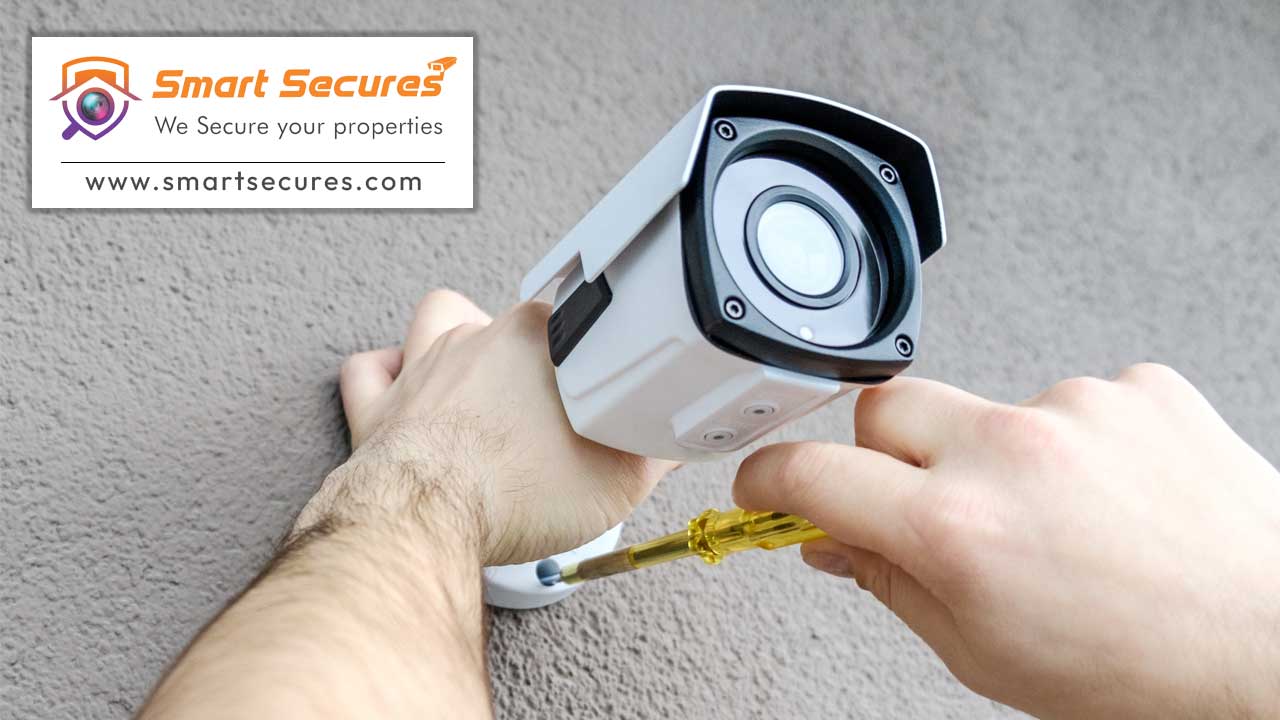
As security concerns grow, installing CCTV cameras has become essential for safeguarding businesses, industrial spaces, and homes. A good CCTV system can help you feel safe. Watching large corporate buildings is useful.
It can also protect industrial machines. Additionally, it can improve home security. In this blog, we will guide you through the CCTV installation process. We will also share helpful tips to ensure you get the most from your surveillance system.
This guide is great for business owners, security teams, and DIY fans. It offers an easy and reliable way to install CCTV cameras.
Why Install CCTV Cameras?
Before diving into the installation process, it’s important to understand the benefits of CCTV systems. Here’s why CCTV cameras are essential for business, industrial, and home security:
- Crime deterrence: CCTV cameras discourage theft, vandalism, and unauthorized access.
- Surveillance: Continuous monitoring ensures real-time observation of your property.
- Evidence collection: In case of an incident, footage can provide valuable evidence.
- Improved safety: Monitor hazardous industrial areas or ensure home safety.
Step-by-Step Guide to Installing CCTV Cameras
To achieve the best results from your surveillance system, follow this CCTV camera setup guide carefully.
Choose the Right CCTV Camera System
The first step in the CCTV installation process is selecting the right system for your needs. Depending on your security requirements, you can choose between different types of cameras:
- Dome cameras for indoor coverage.
- Bullet cameras for outdoor monitoring.
- PTZ (Pan-Tilt-Zoom) cameras for flexible monitoring.
- IP cameras for high-resolution and network integration, ideal for business and industrial use.
For home security, you might want a simple and affordable system. Businesses and industrial sites may need advanced cameras. These cameras can have night vision, motion detection, and remote monitoring.
Plan Your Camera Placement
Before installing cameras, planning where each camera will be placed is crucial. Good camera placement ensures you maximize coverage and minimize blind spots. Here are some security camera installation tips for different environments:
- Business and corporate: Focus on entry and exit points, parking lots, server rooms, and lobbies.
- Industrial sites: Monitor high-risk areas, machinery, and loading docks.
- Home security: Install cameras at main entrances, driveways, and hallways.
Make sure you choose locations that are high enough to avoid tampering but still provide a clear view.
Install the Cameras
Once you’ve planned your layout, it’s time to start the installation. Here’s a beginner’s CCTV installation guide:
- Mount the cameras: Use screws and brackets to secure the cameras. Ensure the angle covers the intended area.
- Connect to power: Depending on your system, you may have wired or wireless cameras. Wired cameras require a direct connection to power and your DVR (Digital Video Recorder) or NVR (Network Video Recorder).
- Wiring setup: For wired systems, carefully route the cables to avoid damage or exposure. Wireless systems are easier to install, but ensure they are within range of your Wi-Fi network.
Set Up the DVR or NVR System
After installing the cameras, you’ll need to set up the recording system:
- DVR systems: Typically used with analogue cameras, DVR systems require direct wiring from the cameras to the unit.
- NVR systems work with IP cameras. They are great for businesses and industries. NVR systems provide higher resolution and allow remote access.
Connect the system to your display monitor and ensure all cameras are visible and functioning correctly.
Configure Camera Settings
After setting up the hardware, configure the settings to suit your needs:
- Adjust the resolution for the best picture quality.
- Enable motion detection to minimize unnecessary recording.
- Set recording schedules based on your security needs.
- Test remote access to ensure you can monitor the cameras from your smartphone or computer.
Test the System
Once everything is set up, it’s essential to test your CCTV system thoroughly. Walk through your space and ensure the cameras cover all necessary areas without blind spots. Also, test the recording system to verify that the system captures and stores the footage properly.
DIY vs. Professional CCTV Installation
If you are good with technology, installing a CCTV camera yourself can save you money. It also gives you more control over the process. However, businesses and industrial sites with complex needs should think about hiring a professional CCTV installer. This helps ensure that everyone sets everything up correctly.
For homes and small businesses, DIY installation is doable. Just follow a simple step-by-step CCTV installation guide. Larger corporate spaces with multiple cameras, integrated systems, and advanced features may require professional CCTV installation to optimize performance.
Security Camera Installation Tips for Business and Industrial Use
When installing cameras in corporate or industrial settings, consider the following:
- Weatherproofing: Use weatherproof cameras for outdoor areas, especially in industrial settings where equipment is exposed to the elements.
- Lighting: Ensure proper lighting to enhance night-time footage, especially in areas like loading docks or parking lots.
- Data security: For business and corporate environments, prioritize network security by encrypting video feeds and setting up firewalls.
Home and Business CCTV Installation: Key Considerations
Whether you’re installing a CCTV system for home or business security, it’s essential to:
- Regularly maintain the cameras to ensure they function correctly.
- Back up important footage regularly to avoid data loss.
- Stay updated on local privacy laws to avoid placing cameras in restricted areas like bathrooms or changing rooms.
Conclusion
If you are installing a CCTV system for your business, industrial site, or home, this guide will help. Follow these steps to set up a secure and working surveillance system. Proper planning, equipment selection, and placement are crucial for effective monitoring and security.
For larger and more complex setups, professional CCTV Camera installation may be the best option. For smaller or residential installations, a DIY CCTV camera installation is a cost-effective way to secure your space. No matter which route you take, a properly installed CCTV system is a valuable tool. It helps improve security and provides peace of mind.







